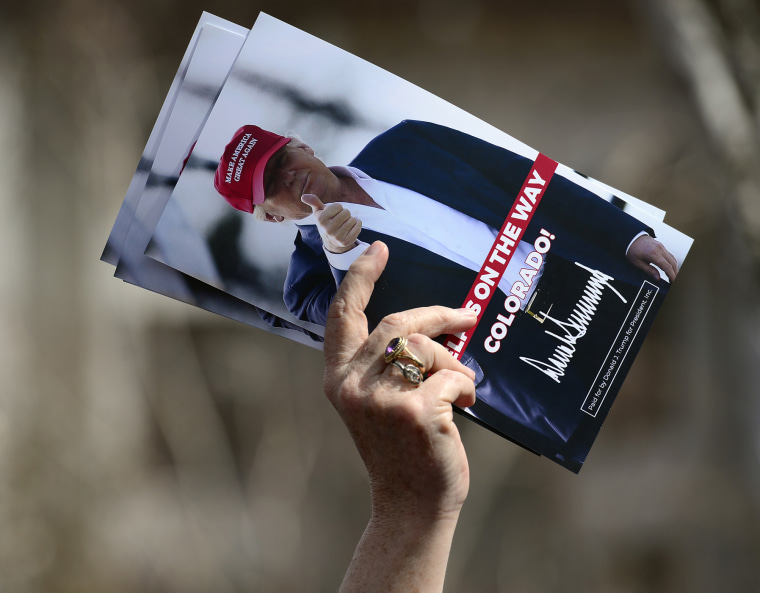On April 1, the fine folks at NBC's First Read took note of Donald Trump's "Terrible, Horrible, No Good, Very Bad Week." At the time, the assessment was more than fair: the Republican frontrunner had not only just lost the Wisconsin primary, but his campaign manager had been charged with misdemeanor battery, and Trump tripped badly over his own vague positions on reproductive rights.
But by some quantitative measures, last week may have been worse.
Ted Cruz's presidential campaign clearly out-hustled Team Trump in Colorado's district conventions, helping narrow the delegate gap a bit. The results were similar in South Carolina. Indiana will host an important primary on May 3, but in the meantime, Politico reported, "Republican Party insiders in the state will select 27 delegates to the national convention on Saturday, and Trump is assured to be nearly shut out of support, according to interviews with a dozen party leaders and officials involved in the delegate selection process."
In the state of Washington, Team Trump sent an email to supporters on Friday, urging them to sign up to be a potential Trump delegate. The "filing deadline to appear on the printed ballot in Saturday's conventions and caucuses" was Wednesday -- two days before the email went out. (Saturday in Colorado, where Trump barely tried, his backers passed out flyers at the convention site "with official campaign slate of 13 delegates and 13 alternates accompanied by their three-digit number position on the 600-plus person ballot. Seven of the names, however, directed people to the wrong number and one delegate's name was misspelled.)
The GOP candidate is aware of the circumstances, and as the Washington Post reported, Trump is outraged -- not by his campaign operation failing to do the necessary follow-through, but by the process itself.
Donald Trump used his first campaign rally in western New York to attack Sen. Ted Cruz for something the Texan happily boasts about: mastering party rules to elect his delegate slates to the Republican National Convention. "They're trying to subvert the movement," Trump said to thousands of voters crammed into a frigid airplane hangar Sunday. "They can't do it with bodies, so they're trying to subvert the movement with crooked shenanigans."
As proof of the system being "corrupt," the New York Republican added, "I go to Louisiana, I win Louisiana. Then I find out I get less delegates than Cruz because of some nonsense."
And therein lies the problem: as Trump sees it, the inconvenient, and at times complex, mechanics of the presidential nominating process are "nonsensical" details with which he'd prefer not to bother.
For Trump, in the midst of his first-ever campaign for public office, the entire endeavor should be more straightforward: win votes, win states, win delegates, win the nomination. To undermine this simple progression is to subvert democracy with corrupt nonsense.
Or put another way, Trump neither likes nor understands the nuances of the rules, and he finds it easier to condemn them, not play by them.
To the extent that the facts matter, there's nothing untoward about Team Cruz taking advantage of a superior field operation and excelling in state and local Republican conventions. It's not the Texas senator's fault that Trump's clumsy bumbling doesn't have its act together.
What's more, in the end, it's not altogether clear whether or not it'll matter. If Trump can get to 1,237 pledged delegates by the start of the Republican National Convention in July, Cruz's success at state conventions almost certainly won't matter, and Trump will prevail on the first ballot.
But if Trump falls short on the first ballot, there's reason to believe his candidacy will face a very serious challenge -- because as we saw over the weekend, many of the delegates who'll go to Cleveland required to support Trump on the first ballot will be eager to support Cruz on the second.
It's a scenario Trump and his aides could have taken steps to prevent through better organizing, but the candidate's amateurishness and d-i-y aesthetic are catching up with him.
Postscript: For all of Trump's complaining, Ari Melber highlights an overlooked detail: the current structure of the RNC's delegate process has, at least so far, helped Trump a lot more than it's hurt him.
